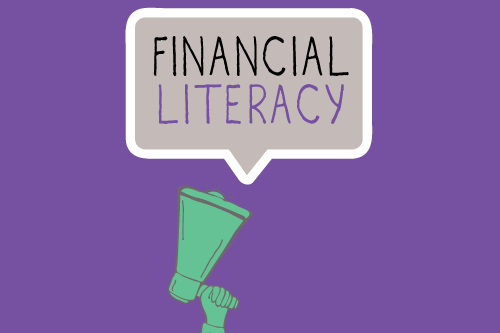Navigating Scholarship Taxes: Are Scholarships Taxable?
Imagine, the excitement you would feel when you get a notification saying you’d won a $2,500 scholarship from ScholarshipPoints! But wait now you wonder, do I pay taxes on that? Here’s the short answer - Scholarship money used to pay for educational related expenses such as tuition, school fees, textbooks, and required equipment is tax-free. Woo Hoo!
Just to be sure, you decide to dig in the details, and yes, scholarships are totally tax-free if it’s used to pay for tuition and other associated school costs. This is even better news since tuition bills are real and help paying them is a huge relief. Scholarship awards can put a nice dent in that bill.
But you become concerned when you read that housing and living expenses don’t count as qualified education costs. You were hoping to use some of your free scholarship money (aka gift-aid) to cover your dorm room or shared apartment rent. But now you’re worried putting the scholarship money towards housing might mean owing taxes on that portion of scholarship winnings. The last thing you want is to get hit with a surprise tax bill next tax season!
You decide to talk to the financial aid office and get the details straight from the source. They are the experts when it comes to paying for higher education but they’re not tax experts. They would most likely recommend that you use all your scholarship awards fully for tuition only if possible. That way, all your scholarship money or gift-aid could remain tax-free.
You’d have to cover the housing costs and other school related expenses by funding the gap through other ways like private student loans, and you wouldn’t lose any of your hard-earned scholarship winnings to the IRS.
After weighing your options, you can still put a plan into action that would not require you to give up any of your scholarship winnings to tax bills. Let’s imagine again that you use $2,000 of your imaginary ScholarshipPoints gift-aid award for tuition and fees for a semester. The remaining $500 went towards books and supplies. Since your qualified education expenses exceeded the scholarship amount, you can avoid any taxes – score! Just remember to keep an exact and up-to-date record of all bills and expenses spent on your education to be extra sure! This could save you from paying any taxes on your scholarship winnings.
Then you find out there’s a difference between private scholarships, like the $2,500 Monthly Scholarship imaginary winnings from ScholarshipPoints, and public scholarships (aka institutional scholarships or grants). Public scholarships are usually awarded by colleges or universities themselves. When you win a public scholarship, the grant money is usually sent directly to your school to cover your tuition and fees.
On the other hand, private scholarships are typically gift-aid from organizations, companies or individuals who want to support students’ educational goals. These private scholarship awards are usually not tied to a specific school or institution, so you might have more choices in how you use the funds. You can collect and save all your private scholarship money in a 529 plan, which is a special account for education expenses.
A 529 plan is your secret weapon for saving money for higher education. A 529 is a College Savings Plan investment account. Here your money can grow and you can use it tax-free as long as you use it on qualified educational expenses.
A 529 would be handy for keeping extra private scholarship money safe and sound, ready for next semester or even the next school year. The money will keep growing over time without having to pay taxes as long as it’s kept in there. It also gives you flexibility because scholarships can sometimes come with rules about how you can use the money, but if you put it all in a 529 plan, you can use it for lots of qualified school expenses, not just tuition. Books, supplies like required lab equipment, and even gadgets needed for coursework may be covered. It’s like having a magic fund for all your education needs!
By keeping any extra private scholarship money in a 529 plan, you’re also getting ready for the future. Costs can go up over time because of inflation and other factors you have no control over. What seems like enough money now might not be enough later, so with a 529 Plan you’re always prepared for any extra expenses.
It must feel great knowing your scholarship research can help you maximize every scholarship dollar award without any of it going to taxes. With the currents costs of college tuition and everything else that goes along with earning higher education, every single dollar can be effective! We are glad that you took the initiative early to understand the tax rules around scholarship winnings.
Here are tips based on our collective experience navigating scholarship taxes:
- Read award letters closely to understand what costs the scholarships cover. Some can be flexible, and others might be more limited.
- Use scholarship winnings for tuition, needed school fees like parking passes, books and supplies for classes only when possible. Qualified expenses are always tax-free.
- Be cautious and avoid using scholarship and gift-aid money on non-essential costs like dorms, travel and tech. These could trigger taxes.
- Keep detailed and correct records showing exactly how you use the scholarship and gift-aid funds. This can provide documentation if any tax issues come up.
- Open a 529 plan, also called a Qualified Tuition Program, as early as possible! Get help finding the best one from your parents, grandparents or guardians. If you’re 18+ then you can open one yourself.
- Deposit and keep all your private scholarship winnings in a 529 plan which could provide tax advantages.
- If you must use scholarship winnings on non-qualified expenses like transportation costs or health insurance, and end up with taxable scholarship income, be sure to set aside some of your winnings to cover the taxes. Don’t forget to report it properly on your tax return. You don’t want an audit!
Rest assured that with thoughtful planning and research up front, you can usually avoid surprise taxes on your scholarship free money awards, like the three monthly $1,000 and $2,500 Scholarships you could win from ScholarshipPoints. Taking the time to understand the rules helps ensure you maximize every gift-aid dollar tax-free. Those scholarship funds help make your higher education dreams a reality!








